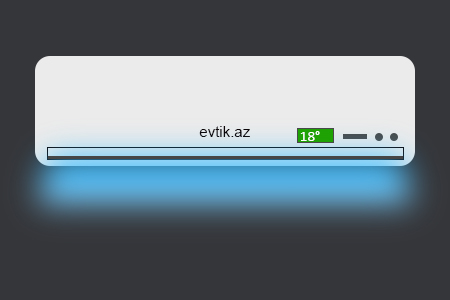Accurate Calculator for Air Conditioner Cooling Capacity for Your Room
Scroll for the calculator
Just enter sizes below and get the result!
Find Your Perfect Air Conditioner Match: BTU Calculator
Choosing the right air conditioner can be overwhelming. Our BTU calculator simplifies the process by considering key factors to determine the ideal power for your room.
Simply enter the following details:
• Room Dimensions: Length, width, and height of your room.
• Outside Walls: Total length of the walls that have a direct contact with outside
• Window Type: Select the type of windows you have (single-pane, double-pane, etc.).
• Window Area: Enter the total area of all windows in square meter (or square feet).
• Wall Material: Specify whether your walls are insulated or uninsulated.
• Wall Thickness: Enter thickness in centimeters (or inch)
With a click, our calculator will provide the recommended BTU (British Thermal Unit) rating for your air conditioner. This ensures:
• Optimal Cooling: A properly sized air conditioner efficiently cools your room without wasting energy.
• Comfort & Efficiency: Enjoy consistent comfort while minimizing your energy consumption.
• Cost Savings: Avoid the expense of an underpowered or oversized air conditioner.
Say goodbye to guesswork and hello to a perfectly cooled room. Use our air conditioner BTU calculator!
A Cool Comfort: The Evolution of Air Conditioners

Air conditioners have become an indispensable part of modern life, providing relief from sweltering temperatures and ensuring our comfort during scorching summers. But how did we come to rely so heavily on these mechanical marvels? Let's delve into the history and evolution of air conditioning.
Early Beginnings
The concept of artificially cooling air dates back centuries. Ancient Egyptians used wind towers, or "malqafs," to capture and circulate cool night air through their homes. The Persians and Romans also employed various methods to create cooler environments, such as underground chambers and water fountains.
Industrial Revolution and Technological Advancements
The Industrial Revolution brought about significant advancements in cooling technology. In the 19th century, scientists began experimenting with refrigeration techniques using substances like ammonia and carbon dioxide. These early systems, while inefficient and dangerous, laid the groundwork for modern air conditioning.
The Birth of Modern Air Conditioning
The turning point in air conditioning history came in 1902 when Willis Carrier, an American engineer, invented the first practical air conditioning system. His invention, originally designed to control humidity in a printing plant, could also cool and dehumidify air. Carrier's system used a refrigeration cycle to remove heat from the air, making it possible to create comfortable indoor environments regardless of the outside temperature.
Air Conditioning Goes Mainstream
In the early 20th century, air conditioning was primarily used in industrial settings and luxury hotels. However, as technology improved and costs decreased, it began to gain popularity in residential and commercial spaces. The development of window air conditioners in the 1930s made it easier for individuals to cool their homes.
Innovations and Efficiency
Over the years, air conditioning technology has continued to evolve. The introduction of split systems, which separate the indoor and outdoor units, improved efficiency and reduced noise. Advances in refrigerant technology have also made air conditioners more environmentally friendly. Today, there are a variety of air conditioning options available, including central air systems, ductless mini-splits, and portable units.
The Future of Air Conditioning
As climate change continues to impact global temperatures, the demand for air conditioning is expected to rise. Researchers and engineers are exploring new technologies to make air conditioning systems more efficient, sustainable, and affordable. These advancements may include the use of renewable energy sources, improved insulation, and innovative cooling techniques.
In conclusion, air conditioners have come a long way since their early beginnings. From ancient wind towers to modern split systems, these mechanical marvels have transformed the way we live and work. As technology continues to advance, we can expect even more innovative and efficient air conditioning solutions to meet the growing demand for comfort and climate control.
Choose your unit: